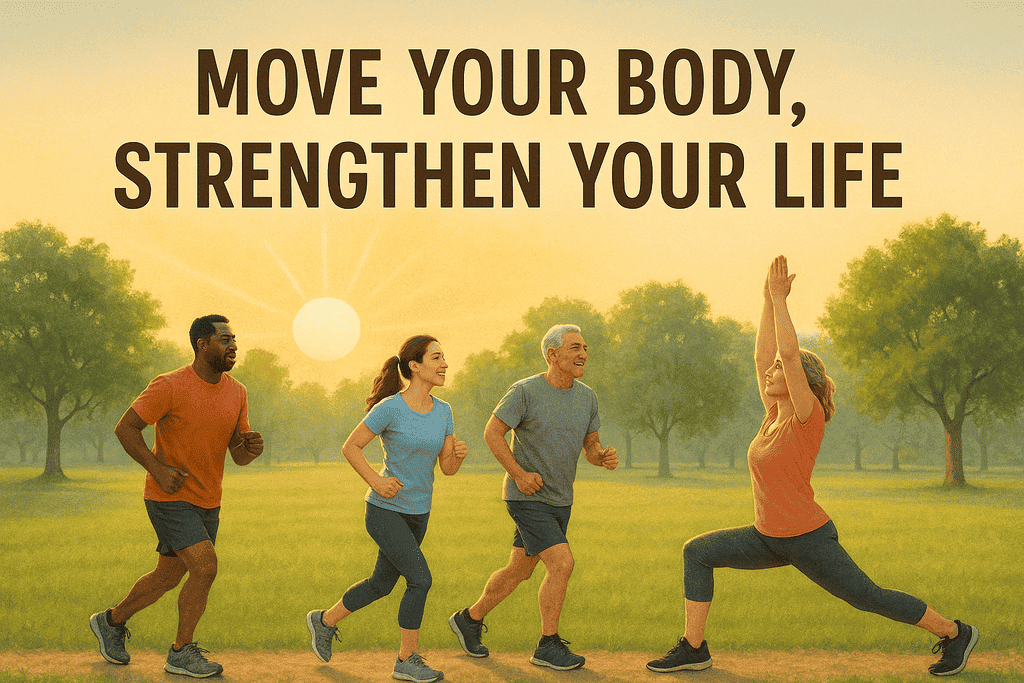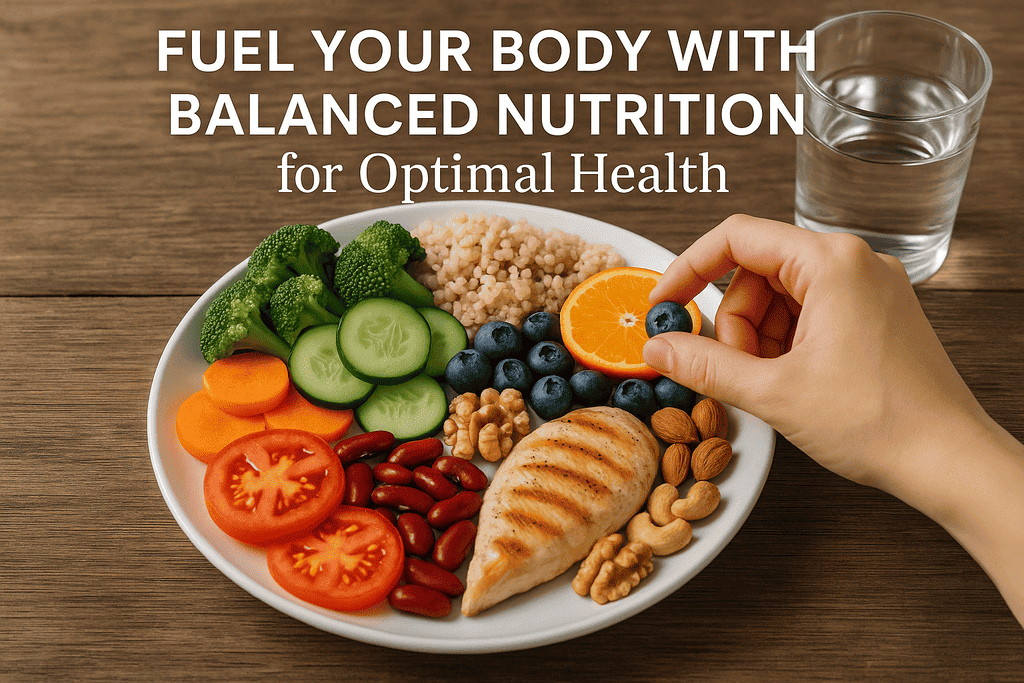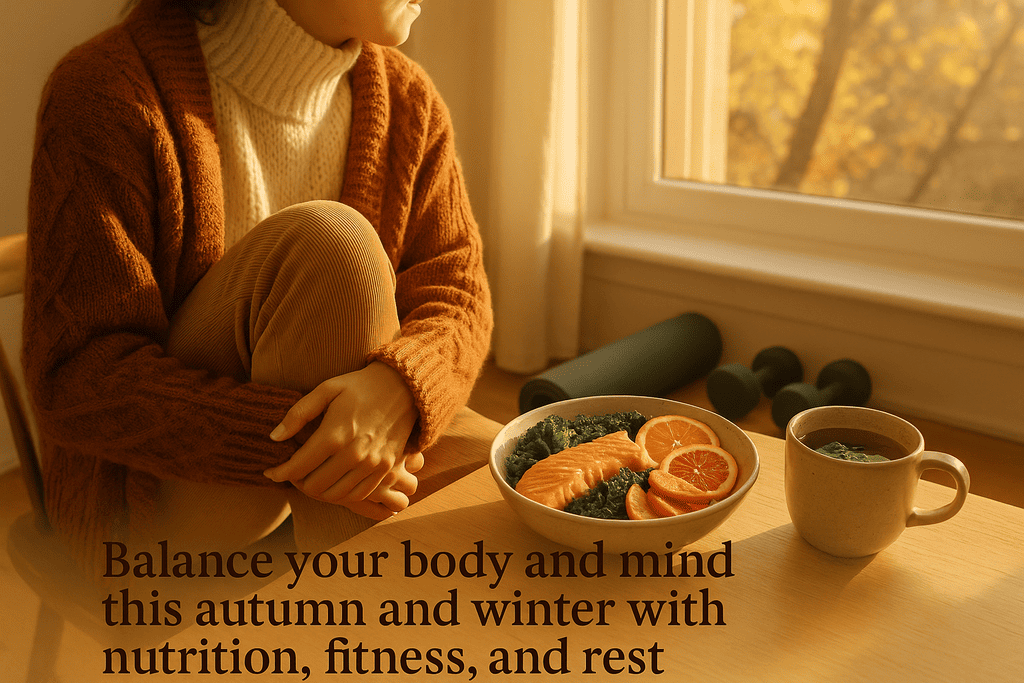
Introduction
In the quest for optimal health, a growing body of scientific evidence underscores the importance of a holistic approach—one that integrates physical, mental, emotional, and spiritual well-being. This comprehensive perspective not only addresses the symptoms of illness but also seeks to understand and rectify the underlying causes, promoting long-term health and vitality.
I. Understanding Holistic Health
Holistic health is a multidimensional approach that considers the interconnectedness of the body, mind, and spirit. It emphasizes treating the whole person rather than focusing solely on specific symptoms or diseases. This paradigm shift acknowledges that optimal health is achieved when all aspects of an individual’s well-being are in harmony.
Key Components of Holistic Health:
- Physical Health: Maintaining bodily functions through proper nutrition, regular exercise, and adequate rest.
- Mental Health: Cultivating cognitive well-being by managing stress, fostering positive relationships, and engaging in stimulating activities.
- Emotional Health: Recognizing and expressing feelings appropriately, and developing resilience to life’s challenges.
- Spiritual Health: Finding purpose and meaning in life, often through personal beliefs, values, or practices.
- Social Health: Building and maintaining supportive relationships and a sense of community.

II. The Role of Nutrition in Holistic Health
Nutrition serves as the foundation of physical health, influencing energy levels, immune function, and overall vitality. A balanced diet rich in whole foods provides the essential nutrients the body needs to function optimally.
Scientific Insights:
- Nutrient Synergy: Recent studies have highlighted the potential synergy between essential nutrients and traditional natural medicines. Combining a balanced diet with natural remedies can enhance the efficacy of both approaches, supporting a comprehensive strategy for health and disease prevention EurekAlert!.
- Traditional Practices: Integrating traditional healing practices, such as Ayurveda and Traditional Chinese Medicine, with modern nutritional science can offer a more holistic approach to health. These systems emphasize balance and the use of natural substances to promote well-being xiahepublishing.com.
Recommended Dietary Practices:
- Whole Foods: Emphasize fruits, vegetables, whole grains, lean proteins, and healthy fats.
- Limit Processed Foods: Reduce intake of refined sugars, trans fats, and highly processed items.
- Hydration: Ensure adequate water intake to support metabolic processes and detoxification.

III. Physical Activity : The Pillar of Physical Health
Regular physical activity is crucial for maintaining bodily functions and preventing chronic diseases. It enhances cardiovascular health, strengthens muscles and bones, and improves mental health by releasing endorphins.
Scientific Insights:
- Exercise and Longevity: Studies have shown that regular physical activity can extend lifespan and improve quality of life by reducing the risk of diseases such as heart disease, diabetes, and certain cancers.
- Mental Health Benefits: Physical activity has been linked to reduced symptoms of depression and anxiety, highlighting its role in emotional well-being.
Recommended Physical Activities:
- Aerobic Exercises: Activities like walking, cycling, and swimming to improve cardiovascular health.
- Strength Training: Exercises such as weightlifting or resistance training to build muscle mass and bone density.
- Flexibility and Balance: Practices like yoga or tai chi to enhance flexibility and prevent falls.

IV. Mental and Emotional Well-being
Mental and emotional health are integral to overall well-being. Managing stress, fostering positive relationships, and engaging in activities that promote mental clarity are essential components of a holistic health approach.
Scientific Insights:
- Stress Management: Chronic stress can lead to various health issues, including hypertension and weakened immune function. Techniques such as mindfulness, meditation, and deep-breathing exercises can mitigate stress and promote relaxation.
- Emotional Expression: Recognizing and expressing emotions appropriately can prevent the buildup of negative feelings and contribute to emotional balance.
Strategies for Mental and Emotional Health:
- Mindfulness Practices: Engage in activities like meditation or journaling to increase self-awareness.
- Social Connections: Build and maintain supportive relationships to enhance emotional resilience.
- Professional Support: Seek therapy or counseling when needed to address mental health concerns.
V. Spiritual Health and Purpose
Spiritual health involves finding meaning and purpose in life, which can provide a sense of direction and fulfillment. This aspect of health is deeply personal and can be expressed through various avenues, including religion, personal beliefs, or a connection to nature.
Scientific Insights:
- Purpose and Health: Research has indicated that individuals with a strong sense of purpose tend to have better health outcomes, including lower risks of chronic diseases and improved mental health.
- Spiritual Practices: Engaging in spiritual practices can reduce stress and promote a sense of community and belonging.
Ways to Cultivate Spiritual Health:
- Reflective Practices: Spend time in contemplation or prayer to connect with your inner self.
- Community Involvement: Participate in groups or activities that align with your values and beliefs.
- Nature Connection: Spend time outdoors to foster a sense of awe and connection to the world around you.

VI. Integrating Traditional and Modern Medicine
A holistic approach to health often involves integrating traditional healing practices with modern medical science. This integrative model combines the strengths of both systems to provide comprehensive care.
Scientific Insights:
- Integrative Healthcare: The integration of traditional and modern medicine can enhance patient outcomes by addressing both the physical and emotional aspects of health ResearchGate.
- Personalized Care: Approaches like functional medicine focus on addressing the root causes of health issues through personalized treatment plans that consider genetics, environment, and lifestyle factors Alpha Care Wellness Center.
Implementing Integrative Practices:
- Collaborative Care: Work with healthcare providers who are open to combining traditional and modern treatments.
- Personalized Plans: Develop health strategies tailored to your individual needs and circumstances.
- Continuous Learning: Stay informed about both traditional and modern health practices to make educated decisions about your care.
Conclusion
Achieving optimal health requires a comprehensive approach that addresses the physical, mental, emotional, and spiritual aspects of well-being. By integrating balanced nutrition, regular physical activity, mental and emotional care, spiritual fulfillment, and a combination of traditional and modern medical practices, individuals can promote long-term health and vitality.
Summary Table: Holistic Health Components
| Component | Key Practices |
|---|---|
| Physical Health | Balanced diet, regular exercise, adequate sleep |
| Mental Health | Stress management, cognitive stimulation, emotional expression |
| Emotional Health | Positive relationships, emotional resilience, self-awareness |
| Spiritual Health | Purpose and meaning, spiritual practices, community involvement |
| Integrative Medicine | Combining traditional and modern medical practices for comprehensive care |
By embracing a holistic approach, individuals can achieve a state of optimal health that encompasses all facets of their being, leading to a more fulfilling and balanced life.
References
- Goyal, M. R., & Chauhan, A. (2024). Holistic Approach of Nutrients and Traditional Natural Medicines for Human Health: A Review. Future Integrative Medicine. Retrieved from https://www.news-medical.net/news/20241113/The-synergy-of-nutrition-and-traditional-medicine-for-holistic-health-and-wellbeing.aspx
- Adigun, K. (2025). Achieving Optimal Health Status for the Society. Annals of Ibadan Postgraduate Medicine. Retrieved from https://pmc.ncbi.nlm.nih.gov/articles/PMC12337972/
- Shah, P. (2024). Holistic Health: A Comprehensive Approach. Sterling Hospitals. Retrieved from https://www.sterlinghospitals.com/josh/holistic-health-is-a-concept-that-emphasizes-the-i?joshId=issue02-october2024&joshName=Issue+02%2FOctober+2024
- Thomas, L. (2024). The Synergy of Nutrition and Traditional Medicine for Holistic Health and Wellbeing. News-Medical. Retrieved from https://www.news-medical.net/news/20241113/The-synergy-of-nutrition-and-traditional-medicine-for-holistic-health-and-wellbeing.aspx







